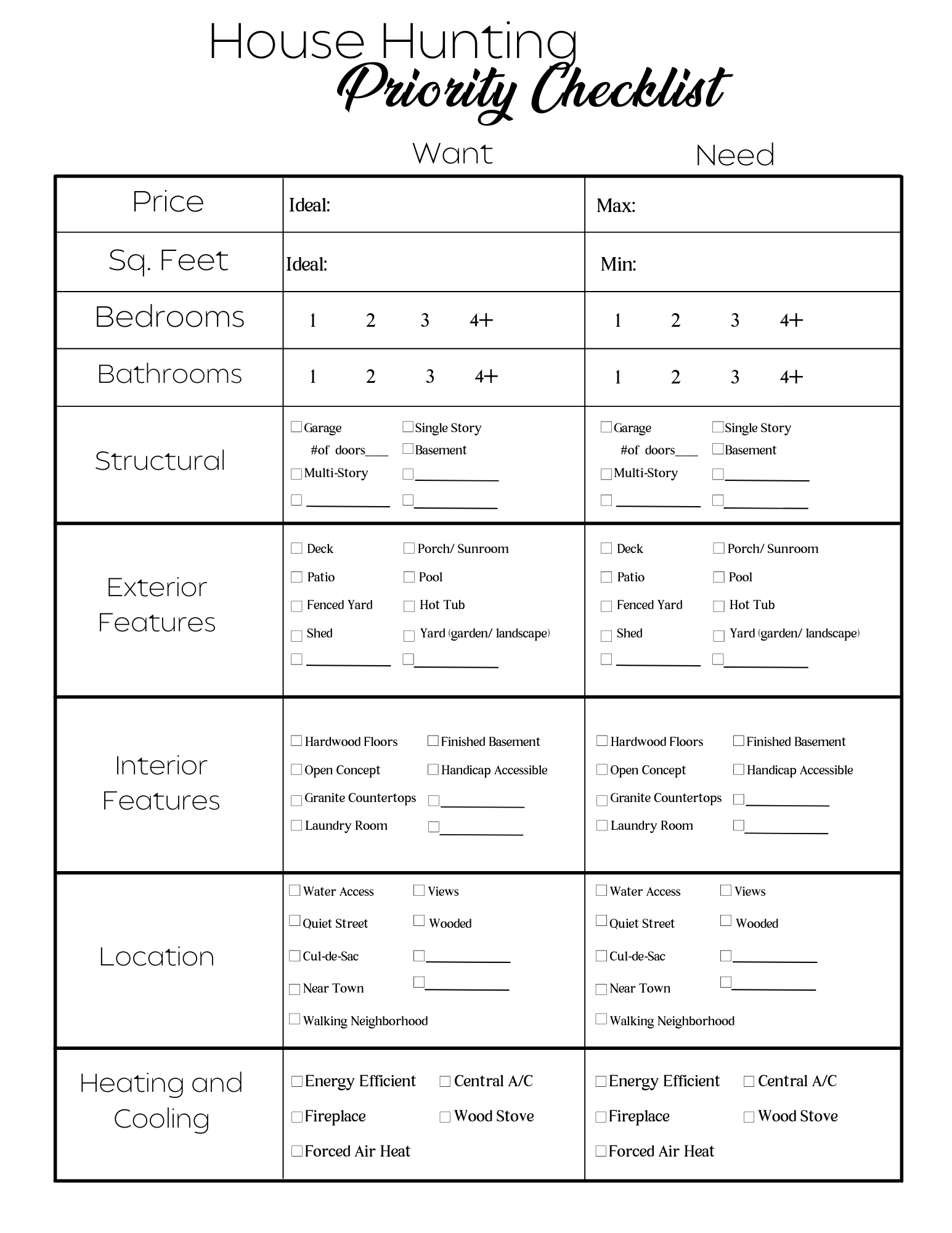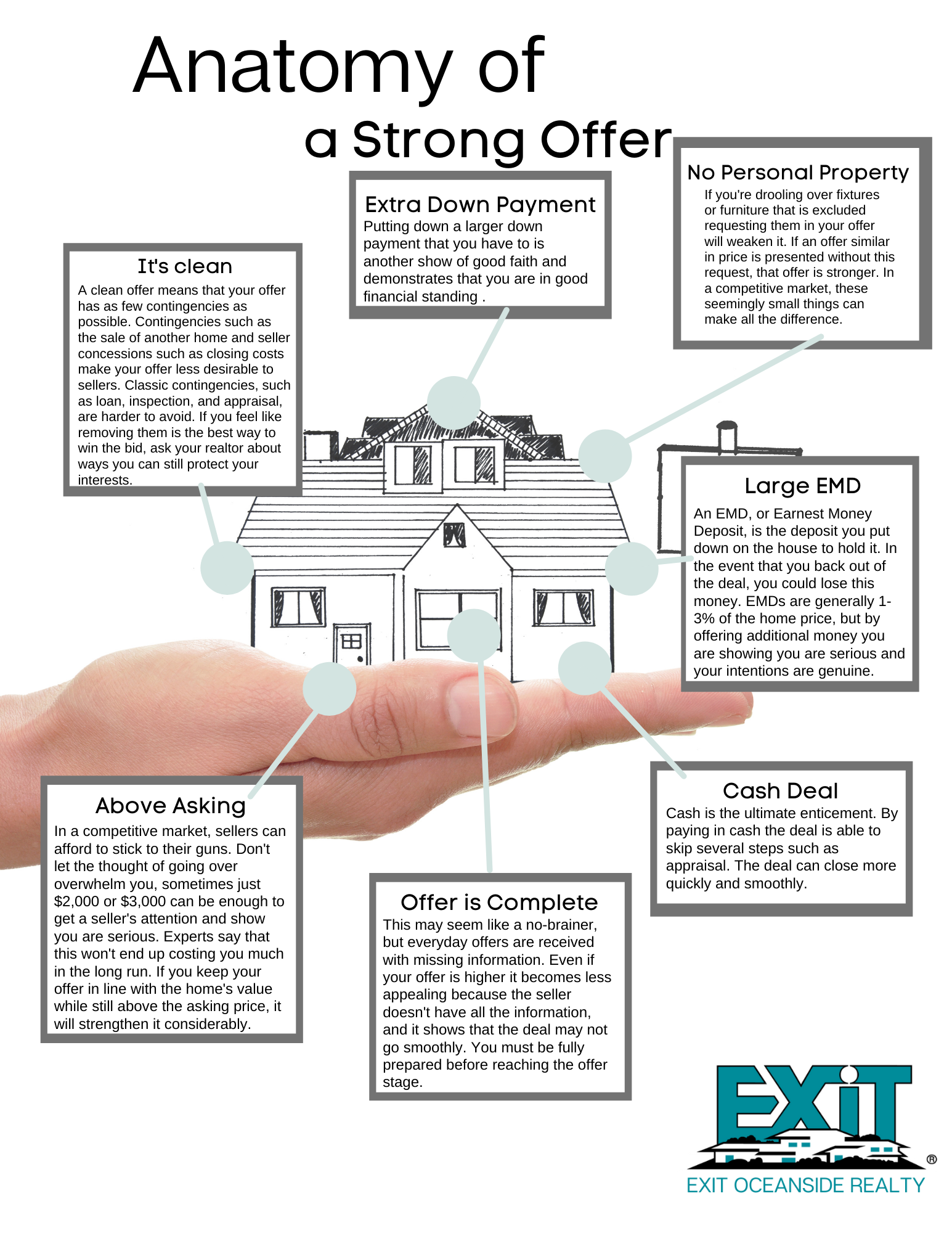Your Guide to Navigating a Competitive Real Estate Market Part 1: Buyers
It has been a sellers market for what feels like an eon and while many buyers feel discouraged, the savvy among them have gotten strategic. But, what does that even mean? The reality is that the average buyer doesn’t even know where to start when it comes to real estate strategy. Lucky for you, we at EXIT Oceanside Realty are here to help.
Strategic Step One- Get Pre-Qualified
No, getting pre-qualified does not negatively impact your credit score. No, getting pre-qualified does not commit you to a lender. No, getting pre-qualified isn’t hard. It doesn’t take long and all you need is some basic information.
What being prequalified does do is give your realtor a price range to look at. It also allows you to approach your purchase with confidence, allow you to move quickly when putting in an offer, and be an overall more competitive buyer.
Strategic Step Two- Get a Buyer’s Agent
A Realtor is a professional who will guide you through the entire home buying process, looking out for your best interests and helping you negotiate for the best deal possible. Your Realtor is an expert on the local market and is familiar with all available homes in the area. They may even have knowledge of homes that haven't even hit Zillow yet! A good realtor will work with you as a team to develop your buying strategy, putting together a competitive offer and advocating for you. Trying to represent yourself in a competitive market is like a little leaguer playing against the Red Sox!
Strategic Step Three- Know What You Want
Understanding your Needs and Wants before you begin looking at homes is a vital part of the home buying journey. Doing your homework helps you:
- Save time
- Get on the same page with your spouse
- Make better financial decisions
- Act quickly and confidently
Below is our worksheet to help you figure out what you Need in a home vs. what you Want in a home. Keep the following in mind:
- Need: A need is a dealbreaker. Consider the things that are non-negotiable.
- Want: Wants are things that are on the wishlist, but to a certain degree are negotiable
- Don't Want: Some of the items on our list may fall into the don't want category. These are things that are non-negotiable in the negative. You can simply put a line through these items under Need.

Strategic Step Four- Write a Thoughtful Offer
This may be the most difficult part of being a competitive buyer. Here you have to set emotion aside and think about your home purchase as a financial transaction. In a competitive market writing an offer means looking at what the house is worth, what the market is valuing it at, what it will take to be competitive, and deciding if moving forward will make financial sense.
Evaluating the house’s value and preparing to make an offer will look like this:
1- Compare Similar Properties
Your Realtor will most likely complete a CMA (Comparative Market Analysis) that examines the price of recently sold, active, and pending properties that are similar to the property you are interested in.
2- Examine the Market
Your Realtor will show you market data in the following areas to help you understand how the real estate market should affect your offer strategy.
- Pricing Trends- Look at the list price vs. sales price percentages.
- Supply and Demand- How many homes are on the market? In a high-demand low inventory market, you may have more competition.
- Absorption Rate- The absorption rate is the number of months' supply of inventory. The fewer month's worth of inventory out there the more competitive the market.
- Average Time on the Market- Look at the cumulative time on the market to account for homes whose listings have expired or have relisted to get the most accurate look at this figure.
3- Look at the Property
Once you have a good understanding of the market you will need to take a good look at the property itself. Even in a very competitive market, there are things about a property that are going to affect your offered amount.
- Condition- Will the property need significant repair and updating or is it move-in ready?
- Time on the Market- If the property has been on the market for longer than average it may indicate inappropriate pricing or some inherent issue with the property.
- Seller Motivation- Does the seller need to sell right now or are they in no hurry to move?
- Property History- What is the previous sale and finance history of the property and what does it tell you?
4- Write Your Offer
Here is the tough part, look at what the house is worth and consider what it will take to make your offer competitive. While offer price is an important aspect of an offer you will also need to consider the following:
- How are you financing this purchase?
- How much earnest money will you offer?
- What are the contingencies that must be added?
- What are your provisions and terms?
It's at this point you reconsider writing an offer all together, or you may decide you’re all in, in which case you’ll want to take a look at our guide to writing a strong offer below.

--
Even if you’ve written the strongest offer possible it's hard to know that your strongest offer isn't necessarily a guarantee that your offer will be accepted. A competitive market is uncertain, but at least with the guidance of your EXIT Realtor you can be assured that you gave it your all.





